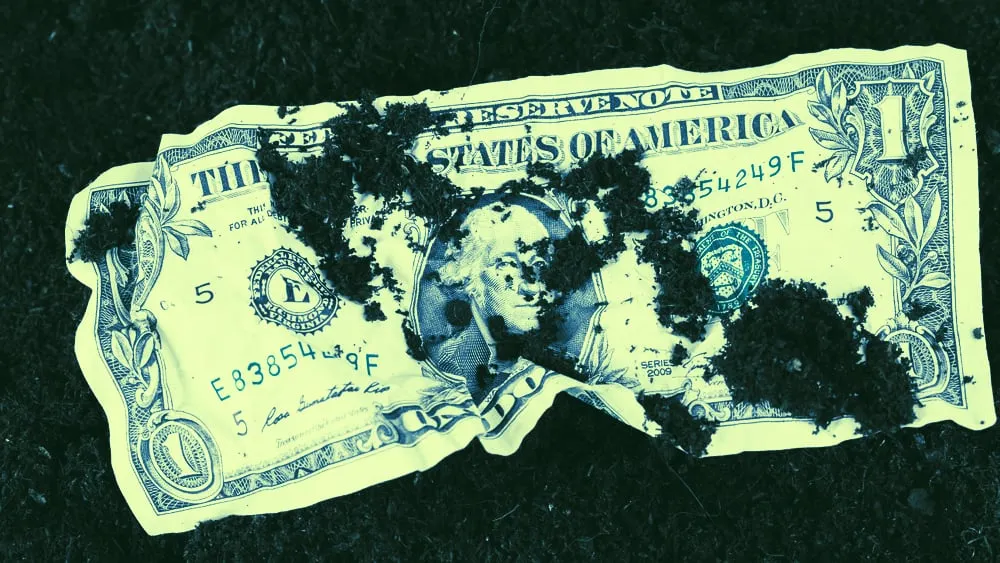In brief
- The WHO has warned about the dangers of using cash.
- Cash could carry the deadly coronavirus.
- It recommends using contactless cards instead.
As the coronavirus continues its march around the globe, the World Health Organisation (WHO) has warned the general public that paper banknotes may be spreading the infection, according to The Telegraph.
“Customers should wash their hands after touching banknotes because infectious Covid-19 may cling to the surface for several days,” the WHO said.

Per the health organization’s statement, people should try to use contactless payment methods—where it’s possible—to prevent the coronavirus from spreading.
According to The Telegraph, the Bank of England has said that banknotes “can carry bacteria or viruses.” In fact, some banks provide hand disinfectants and even Geiger counters to their employees who are regularly involved with cash.
Bitcoin and other cryptocurrencies, on the other hand, are free of such problems. Being fully-digital, they are not a representation of physical assets or cash—they are the digits.
And they are starting to get recognized as such. On Monday, Germany clarified that Bitcoin and other cryptocurrencies are mediums of exchange—as long as they fit five requirements. This will help to encourage people and businesses to use cryptocurrencies in the region.
Cash’s days are numbered too. As Decrypt reported last December, various governments and central banks around the world have also accelerated their global war on cash, although not out of concern for public health.
On the outside, this might look like a bid for modernization, akin to cryptocurrencies. In practice, according to some experts, this is nothing short of an assault on financial freedom, highlighting that cryptocurrencies are currently the only genuinely digital monetary systems in the world. As an added bonus, humans can’t catch a computer virus from cryptos, too.

